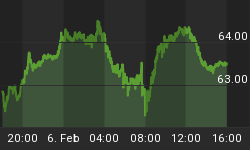The Economist says "China's GDP, measured in nominal dollars, will be the world's largest by 2018". Michael Pettis at China Financial Markets disagrees and says I would like to make a bet with The Economist.
I recently read in The Guardian an article by enthusiastic orientalist Martin Jacques in which he says that The Economist has just predicted that China's GDP, measured in nominal dollars, will be the world's largest by 2018. Earlier estimates, he says had China becoming the largest economy in the world by 2027.
I have always been a little skeptical about the 2027 claim ... given how much we would have to assume about the sustainability of Chinese growth, about the likelihood of current GDP numbers not having been vastly inflated by an over-investment boom, and about the unstable range of political outcomes. It seemed to me to be a prediction about as valuable as the world-beating predictions about the USSR in the 1960s or Japan in the 1980s.
Still, this 2018 prediction deserves I think more than a little questioning -- it requires that nominal Chinese GDP growth in dollars outpace nominal US GDP growth by 12% a year.
So I am wondering whether we could set up a friendly bet -- not for too large stakes. I would like to bet that by the end of 2018 China will not be the largest economy in the world.
If I win, perhaps The Economist could invite a very cool underground Chinese band of my choice to perform at their next big conference, whereas if I lose I could buy four-year subscriptions (student rates, please) to a group of Peking University freshmen. Everybody would end up feeling pretty pleased with themselves no matter who wins, right? So?
The Dating Game
Inquiring minds are looking at an interactive chart on The Economist in an article called The Dating Game.
AMERICA'S GDP is still roughly twice as big as China's (using market exchange rates). To predict when the gap might be closed, The Economist has updated its interactive chart below with the latest GDP numbers. This allows you to plug in your own assumptions about real GDP growth in China and America, inflation rates and the yuan's exchange rate against the dollar. Over the past ten years, real GDP growth averaged 10.5% a year in China and 1.6% in America; inflation (as measured by the GDP deflator) averaged 4.3% and 2.2% respectively. Since Beijing scrapped its dollar peg in 2005, the yuan has risen by an annual average of just over 4%. Our best guess for the next decade is that annual GDP growth averages 7.75% in China and 2.5% in America, inflation rates average 4% and 1.5%, and the yuan appreciates by 3% a year. Plug in these numbers and China will overtake America in 2018. Alternatively, if China's real growth rate slows to an average of only 5%, then (leaving the other assumptions unchanged) it would not become number one until 2021. What do you think?
Snapshot of The Economist Baseline Assumptions

The interactive graph is too large for my blog, but the above screen snapshot shows The Economist baseline assumptions. To play around with the numbers, click on the above link.
I share a viewpoint with Pettis that The Economist is way too generous in their estimate of real GDP growth for China.
Pettis thinks China will average 3% growth and I already posted I found that number reasonable. As far as Yuan appreciation is concerned, I am not at all convinced the Yuan is undervalued at all, yet I plugged in a nominal 2% annual appreciation.
Assuming a "Real GDP growth" of 3% and Inflation at 4% yields a chart that looks like this.
Snapshot of Mish Baseline Assumptions

Even still, I wonder if the year 2030 is still far too optimistic from the standpoint of China.
I strongly believe peak oil and energy consumption is going to put a serious damper on Chinese growth, and that is on top a necessary and very painful shift away from an entirely unsustainable growth model based on exports, housing, and fixed investment.
I share Pettis' view regarding "inflated GDP numbers, an over-investment boom, and the unstable range of political outcomes" adding my own energy concerns and yuan valuation concerns on top of it all.
Thoughts on Chinese Growth
- March 23, 2012: Excellent Document on Decoupling and Global Supply Chains by ECRI; Why BRIC, and U.S. Decoupling Won't Happen
- February 29, 2012: World Bank Warns of Economic Crisis in China; Only 3% Growth for Decade Says Michael Pettis
- September 21, 2011: Misleading Indicators - China's Growth Won't Last; Chanos on Chinese Property Bubble and Growth
- August 22, 2011: Michael Pettis on Long-Term Outlook for China, Europe, and the World; 12 Global Predictions
I find the arguments by Pettis, the ECRI, and Chanos compelling. Add to that the restraint of peak oil coupled with potential political instability and the proper conclusion is that long-term Chinese growth of 7.5% is Fantasyland material.















